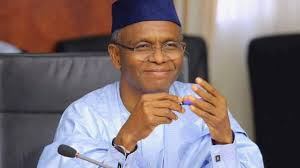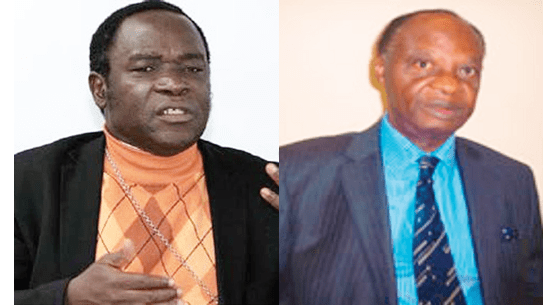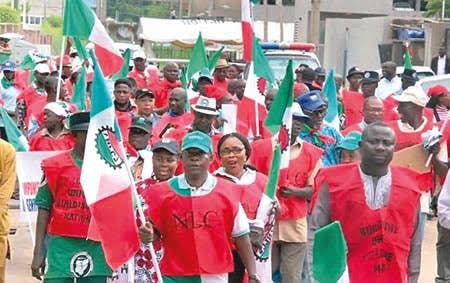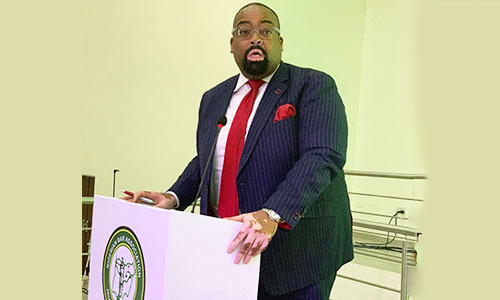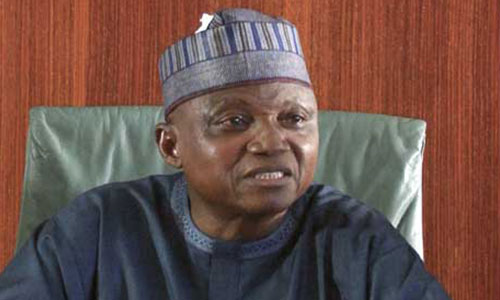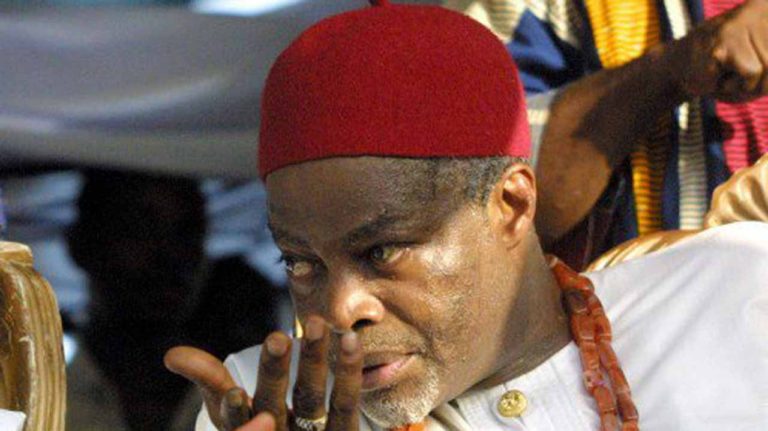By Celestine Okafor
Friday, September 25, 2020, was exactly seventeen (17) years Nigeria’s most intellectually gifted Senate President, Senator (Dr) Chuba Okadigbo, popularly known as “Oyi of Oyi” passed on.
Chuba, as he was fondly called, died late evening of Thursday, September 25, 2003, while being rushed to the National Hospital Abuja, following a medical complication arising from a tear gas substance sprayed by the police on him and on President Muhammadu Buhari, along with other defunct All Nigerian Peoples Party (ANPP) politicians, during a party rally at the Kano Stadium. He was eventually buried on Saturday, December 5, 2003.
During his lifetime, Dr. Okadigbo was a renowned charismatic politician, an ivory tower intellectual, an existential philosopher and popular grassroots politician whose fame, based essentially on his solid personal achievements, cuts across the length and breadth of Nigeria and beyond. And of course, the “Great Oyi” knew this much.
“When fans hail me, presidents feel awkward,” said Okadigbo in his last interview with this reporter in the early week of September, 2003, shortly before his demise. That Sunday, afternoon, Chuba hobbled, though, with some regal confidence, to his usual sitting position in the sparsely-furnished living room: a beautifully designed single-seater upholstery chair, covered with animal skin. His tall, lanky frame accentuated his aristocratic bearing. As he gracefully relapsed onto his chair, he quickly adjusted himself; his right arm carefully thrown under the nape of his head in a head-supporting position.
This princely poise was typical of the late Senator Chinwuba Godson Wilberforce Okadigbo, former Senate President of Nigeria, ex-Vice Presidential candidate of the ANPP in the 2003 presidential election and a foremost Igbo intellectual, a continental scholar and Nigerian statesman.
At the time of speaking with Okadigbo that hot Sunday afternoon, the “Oyi of Oyi” and the “Ekwueme of Ogbunike” in Anambra State, however, was in Lagos to confer with his political supporters. He was around for serious political business, but he equally had time for other things, part of which was this interview, conducted in his Apapa, Lagos home. The interview explored the man and the myth called Chuba Okadigbo. For a greater part of his political and academic career, which spanned well over 43 years, Okadigbo’s politics, philosophy, character and mannerism, are well-known, but the factors that made the totality of the man called Oyi, remained yet unknown to many.
With a long-drawn hysterical laughter and nostalgia evident on his face, Chuba was ready for self-disclosure. As the reporter appeared quite ready to burrow like an earthworm into the Okadigbo persona, the Chuba myth, the lawmaker was indeed ready to reveal the many other unknown sides of him. Prodded, however, to disclose the secrets of his radical inclination and gift of intellect, wit and oratory, Okadigbo said: “I’m a man of adventure, I don’t toe popular mundane line, especially when such path does not advance the cause of humanity. You see, at a time in the days when we were younger, when it was fashionable to school in England, France, Canada or America or to read Law, Medicine or Engineering, I went to the East Germany, a communist enclave, the radical society where there is the other point of view. That time, it was an offence to go to such places for anything. But while in communist Germany as a student, I saw the difference between our society, the capitalist society and the communist society. I studied both of them. The reigning philosophy then was Maxism and Leninism (philosophy of Karl Marx and Vladimir Lenin).
Chuba left Germany later, as a result of the position of their government during the Nigeria-Biafra war, and headed for the Catholic University in America. “This Catholic tertiary institution was a direct antithesis to the Karl Marx University in East Germany where I had studied. I was able to reconcile the two extremes; but then, I had already attuned my mind, my orientation, to the Marxist radical philosophy which I counter-balanced with the American mercantile philosophy. As a matter of fact, the Catholic University shaped my life a lot in the sense that it re-enforced my Christian values deeply and helped in my appreciating humanity. The University also sharpened my knowledge skill tremendously”.
Prior to his exposure to Marxist ideas in Eastern Germany, young Chuba Okadigbo had other influences. As a sophomore at St. Patrick’s College, Asaba, in Delta State, Nigeria, his late father, Chief Ozota (fight for it) Okadigbo, a District Officer (D.O.) in Ogwashi-Ukwu, also in Delta, was in the habit of coercing the young man to educate his mind by reading the daily newspapers and listening to the radio news and summarising the news items for him. The old man’s favourite dailies then were the Daily Times and the West African Pilot newspapers. Also, Chuba was exposed by his father to philosophy digest.
“That set my mind into the higher realm of philosophy,” Okadigbo chuckled, adding that “at St. Patrick’s College, I was taught civic education which was part of our academic curricular. We were made to know our rights quite early. It also helped to develop my spirit of nationalism. We became nationalists between 1955 and 1959 when Nigeria was looking for her Independence. I thank God I had that civic education. So, you can see that I grew up with the idea of freedom; freedom of the mind and freedom of the society. That is why I don’t let anybody, no matter how highly-placed, to trample on my rights and go scot-free. I love human freedom. I fight when those rights are violated,” he said.
Okadigbo’s concept of freedom and quest for power was further inculcated in him, and in his eight other siblings while growing up. His District Officer father – a tall, lanky, native aristocrat in the colonial service who could be described as a man of authority and power – impressed it on the younger Okadigbos, that power is beautiful, a gift of God. Power, he told them, is a cold-blooded calculation which should be preserved and exercised. The old man made his children to understand that power flows in their family, and in their veins; a thing which had been in the Okadigbo family line.
“We were trained to believe that greatness had been with us a long, long time ago,” said Oyi, smiling. “No Okadigbo son or daughter is trained to be a coward; we were born to walk in places of authority through sheer prowess, and we have maintained that.” In the Okadigbo family, Chuba’s mother, the late Chief (Mrs.) Catherine Anyanwu Okadigbo, a baker, women trainer and mobiliser, radiated power and grace. Tall and gracefully-built, she, according to Chuba, was known to be the prettiest woman in Ogbunike, the home town of the Okadigbos in Oyi Local Government Area of Anambra State, South East Nigeria. She was also a scion of the aristocracy, a titled chief called “Nne mmanwu” (mother of the masquerade) who commanded great respect and authority, and was – because of her background, unrivaled personal achievement and physical endowment – accepted into the hallowed traditional club of men called “Ndi-Eze” (the venerated Corp of titled chiefs and kings).
Catherine Okadigbo, Chuba recalled, imparted discipline in her children. From her, young Chuba inherited the gift of oratory, wits, intellectual sophistry, love, personal charm and empathy for fellow men.
As a growing little boy, Senator Chuba Okadigbo was a bit rascally and rough, but brilliant and well focused. He was a determined lad who loved challenges. Among his two immediate brothers, Edmund (elder) and George (younger), Chuba was relatively disadvantaged. While the other two were fair-skinned like their mother, the ex-Senate President was dark like his father. Several incidents that happened between the three brothers ignited the fire of subtle sibling rivalry. As a result of this, there was a personal determination by Chuba to conquer his brothers through achievements and excellence.
“Because of the light complexion of my brothers, people easily took note of them and ignored me,” he said, but not with any tinge of bitterness. “And whenever we went out with our mother, people admired them; they caressed their heads and gave them money, while forgetting me. Rather than envy them, I was determined to work hard and go over them and identify myself by other means. I was determined that my brothers will come to know me later by my superior achievements. That became part of the things that motivated me to do things beyond them.”
This psychology of colour, rather than give Chuba distress, however, spurred him to lofty heights in life. While at College, Chuba was very stubborn, and rightly so, especially when the school authority tries to wobble off the track of decorum and civil behaviour. He was known for his radical activities. Okadigbo specialized in organising strike actions against the school authority, exploiting his existing popularity and controlling influence on his fellow students. But he was quite smart about it, such that his stern father never got to know. While graduating from college, the school authority quickly reminded him of his past. Neatly etched in his school testimonial, was a warning to his prospective employers, that Chuba was a “specialist in organising strike actions”.
What the young man thought to be a minus in his academic record eventually became a plus for him in the future. “I came to the NCNC party office in Yaba (Lagos) in 1961 to look for a party secretary’s job. One chief Dafe, then a Zikist, was in charge of employment at the party secretariat. After interviewing me, he told me that I hadn’t shown him my testimonial. I was actually hiding it. I told him that he would not like the content; that I was a strike organiser. But he said they were actually looking for people like me. I was startled! He then employed me despite getting to know the kind of person l was. I then wondered to myself how funny this life could be. You see, an employer already knew who you were before employing you.”
All through his 43 years career as a politician and an academic, Chuba Okadigbo exhibited certain characteristics that scared some individuals and consequently alienated them from him. He had been described as an arrogant man. He said he had often tried to find out from his traducers why they see him in such uncomplimentary light, but however discovered that their explanations lack reason, logic and substance.
“They certainly can’t say that I am ostentatious,” he argued. “I think that when people can’t understand certain things about me, they call me arrogant. Secondly, I don’t genuflect under executive table, and neither do I indulge in crass sycophancy. I certainly don’t reward mediocrity. I don’t waste too much time on useless things. And I say my mind, the way I feel. I say the truth and move my arguments logically. So, when such people are overpowered by my arguments, they say I am arrogant. As a senior journalist, my good friend Celestine, a distinguished editor, for that matter, working in a well respected national newspaper, you can see it yourself, that I am an accessible person.
“You have known me for some years now. You come to my house or to my office any time and we eat together, chat like good friends that we are, discuss national and international issues, and we argue on intellectual issues most times, even though you refused to work with me when l was Senate President. You preferred your newsroom job (general laughter), do l seem to you like an arrogant? If you look at it, common people don’t say I am arrogant; it is the elites that say so. The ordinary people who have been voting for me in elections for 43 years that I have been in politics couldn’t have been voting for an arrogant man. It is only the elites, most of whom have intolerable and deplorable behaviour that requires serious castigation, that call me an arrogant person. When they (elites) want to mystify themselves, I cast them down and I will continue to do so at the risk of being called arrogant by them until the end of my days. The same people were the ones spreading stories that I was arrogant when I was Senate President of Nigeria. Most people who do not even know me believed it, simply because I refused to compromise on issues of corruption going in the executive arm of government, not to talk of the civil dictatorship (of the Olusegun Obasanjo presidency) for which those people have been exposed by time and circumstance to the Nigerian people.”
From every indication, at the time of this interview, Chuba Okadigbo was a happy and fulfilled man! He was an achiever in the race of life; very happy about his family of 10 children and a beautiful wife, Margery Okadigbo (a lawyer), a member of the 7th Senate of the National Assembly who represented Anambra North Senatorial District, just like her husband, Chuba.
This colourful politician and a high chief in Igboland, was a strong believer in culture and tradition. During the interview, Okadigbo was highly elated that all the false allegations of corrupt practices and propaganda against him as Nigeria’s Senate president “just to remove me for being an Okadigbo” were things of the past before his death.
“The Senate has reversed itself because truth is eternal and will prevail at the appropriate time. That time is now! They thought they could effectively use those false allegations against me during the presidential election campaign (in 2003); so they framed me too early to achieve that purpose. But I have forgiven all those who had wronged me. I embraced, on the floor of the senate chambers, those senators who were used against me for that false allegation, the day Senator Idris Kuta panel report was quashed.
“My family is happy about the development too. I love them (family members). I perform all my functions as a father and husband (laughs). I believe in the growth of the family, in family discipline, as we were taught, in line with the Catholic doctrine. I keep in touch with relations. I help them when I can because I don’t have stupendous wealth to help everybody. I live a moderate and simple life, no exotic cars and mansions. I don’t engage in frolics.”
Contrary to media reports shortly before the 2003 presidential election that Okadigbo and his erstwhile political boss, President Muhammadu Buhari, had mutual quarrels and political differences, the Oyi debunked all that, saying that their relationship at the time was good and rock-solid. While this interview was on-going, President Buhari telephoned Okadigbo several times to discuss numerous political and campaign issues with him. The two men laughed heartily during that interaction. “Sir, l am presently having an interview with our good friend, Celestine Okafor, the newspaper editor”, Okadigbo quickly hinted General Buhari. “Nwokem (my friend), hold on the phone, for the General”, Chuba said, grinning from ear to ear. He swiftly handed his mobile phone handset to this reporter who briefly exchanged warm pleasantries with Buhari and immediately continued with the interview session with his host.
Months earlier, at a small conclave of the select inner caucus of the then Presidential campaign team of the opposition All Nigerian People’s Party (ANPP) at the Asokoro, Abuja residence of Chief Don Etiebet, the then ANPP National Chairman, both Okadigbo, Chief Etiebet and late Dr Marshal Harry (pioneer PDP’s National Vice Chairman for the South South zone) had introduced this writer to President Muhammadu Buhari as a “credible and reliable senior journalist who believes in our progressives campaign philosophy and ability to revamp the national economy and bring about good governance in Nigeria”. However, subsequent events and other developments enhanced the familiarity that existed between President Buhari and this interviewer, to this day.
Okadigbo, however, continued: “That report (Senator Idris Kuta report against Okadigbo) was mischievous and was sponsored by our main opponent political party (the PDP), using their paid hack writers, just to give a false impression about the ANPP to the public,” the former Senate President stated. “The story was the handiwork of desperate political opponents who have failed to deliver on the dividends of democracy. I pointed out the failings of these people when I was Senate President, and they used public funds and government machinery to fight me.” Just when campaign was going on in some quarters that Okadigbo was not popular enough and might not deliver the votes of the Igbo people to the ANPP in the 2003 presidential poll, Chuba contends that his detractors were being stingy with the truth!
“I challenge them to follow me to places and to the streets. Whenever I arrive Akanu Ibiam (now International) Airport, Enugu or in any other airport in this country for that matter, I am usually accosted by a mammoth crowd. Large supporters or political followings are not for unpopular politicians. From Aso Rock to party meetings, to the National Assembly, and to the party conventions where party chairmen, president, governors, ministers and other dignitaries are seated, the crowd mob me. They hail me and president and dignitaries feel envious; they feel inferior and awkward. Even at the international airports in London, New York or Washington; in Paris, Tokyo, New Zealand or elsewhere, for instance, I am also being cheered always by the immigration officials in those countries who clear the way for me, with respect. That is what those vile critics of me are not happy about. These are the things that make one sound immodest and they say I am arrogant when I react. I am one of the most popular men in this republic, as I have always been”.
Okadigbo, a former presidential political adviser to ex-president Shehu Shagari during the ill-fated second republic and also a former University lecturer at the Faculty of Social Sciences of the University of Nigeria Nsukka (UNN), however, said that Nigerians and particularly Ndigbo love Chuba Okadigbo because of their value attachment to him. “They value integrity, merit, and knowledge, which I have sufficiently. God gave all these to me. It is not by juju (black magic). I have natural charisma, right from my childhood. It is a spiritual gift and you don’t purchase it. I don’t even know that I have them! God gave them to me, and nobody can take them away, except the Almighty God. I will go with those natural gifts down to my grave.
Chuba, however, gave a hint of the magic of his famed personal charm. “My charisma is such that if I enter your house and you have dogs, the moment those dogs see me, they stop barking, and I stroke them. I once encountered a gang of armed robbers on the highway, and when I came out of my car, they simply dropped their guns and instantly began to hail me “Oyiiii”, and even scrambled to shake my hands. It is all God’s gift! I can’t hide myself. I can’t tell people to stop liking or loving me. I have no apology for being popular. My people (Ndigbo) like strong men and I am strong. I am only sorry for those boot-lickers. I shall take them on, at the appropriate time,” he threatened.
But the “Oyii” never did! Death botched his plans, his revenge plot! Seventeen years after the death of this philosopher king, the nation fondly remembers the renowned democrat, Senator Wilberforce Chuba Okadigbo. Were he to be alive, perhaps the “Ikenga Igwuedo” surely would have risen further in his political career, or probably, would have been considering retirement from politics by now. Okadigbo also would have put in place, structures to immortalise himself, his political beliefs and philosophy. He equally would have played significant roles in deepening Nigeria’s democracy; he definitely would have been a frontliner among the progressive forces who led the democratic vanguard that brutally shot down to smithereens, the ill-conceived, the ill-fated, self-succession or tenure enlongation plot (aka Third Term) nursed by former President Olusegun Obasanjo in 2006/2007, just as he would have worked for the early reality of the Buhari presidency and play a great part in directing affairs in the administration.
Chuba certainly would have been fair, definite and vehement in his position on the contentious issue of North-South power rotation (a.k.a. zoning). He would also have championed the 2023 Igbo presidency question which is somewhat precariously embroiled in uncertainty, arising from the bogey of restructuring, political conspiracy, regional apathy and bad politics, just as he would have been in the fore-front for the reformation of Nigeria’s defective electoral system. Okadigbo would equally have raised the bar on the ongoing legislative exercise on the Constitutional Review process.
Credits: NNL

